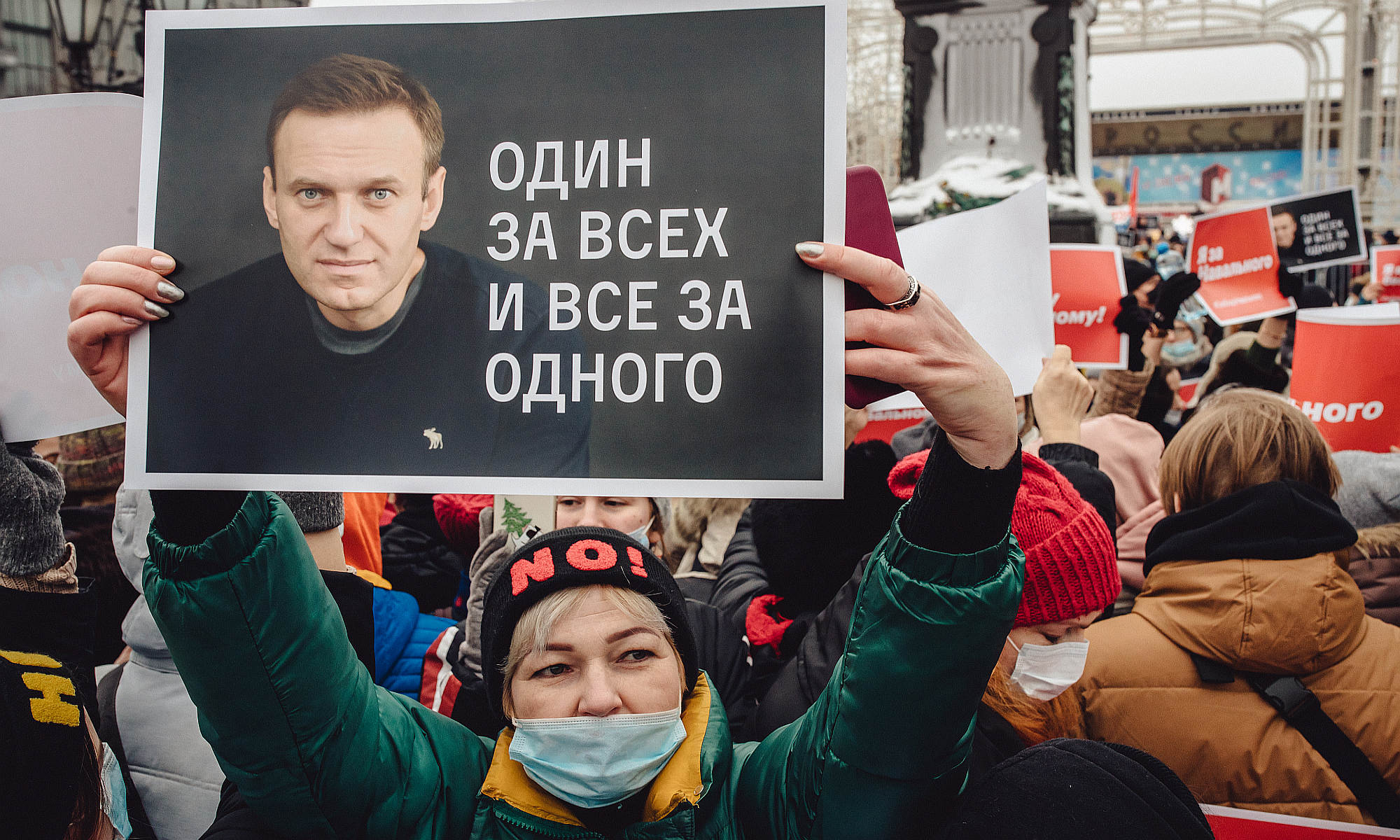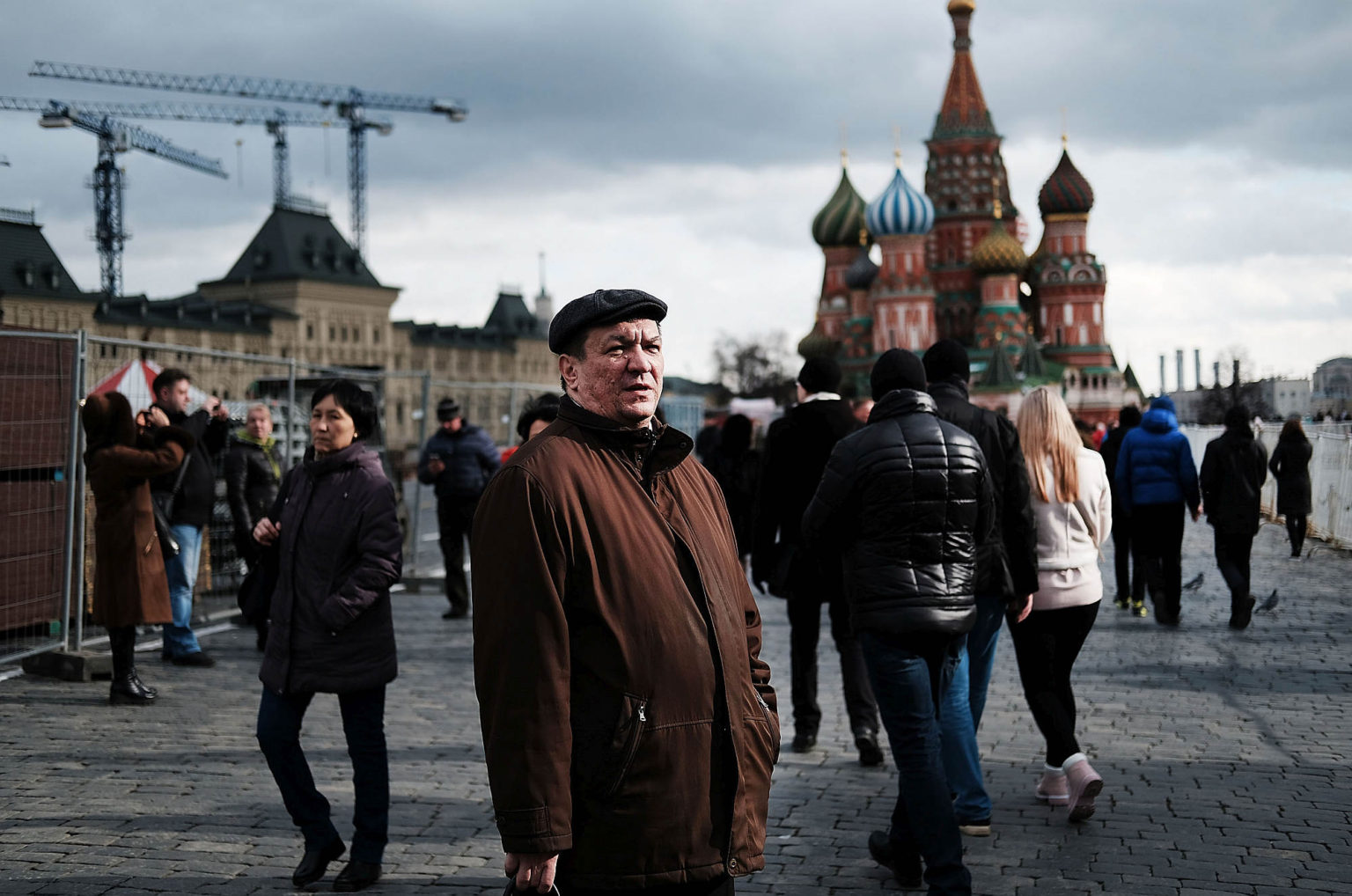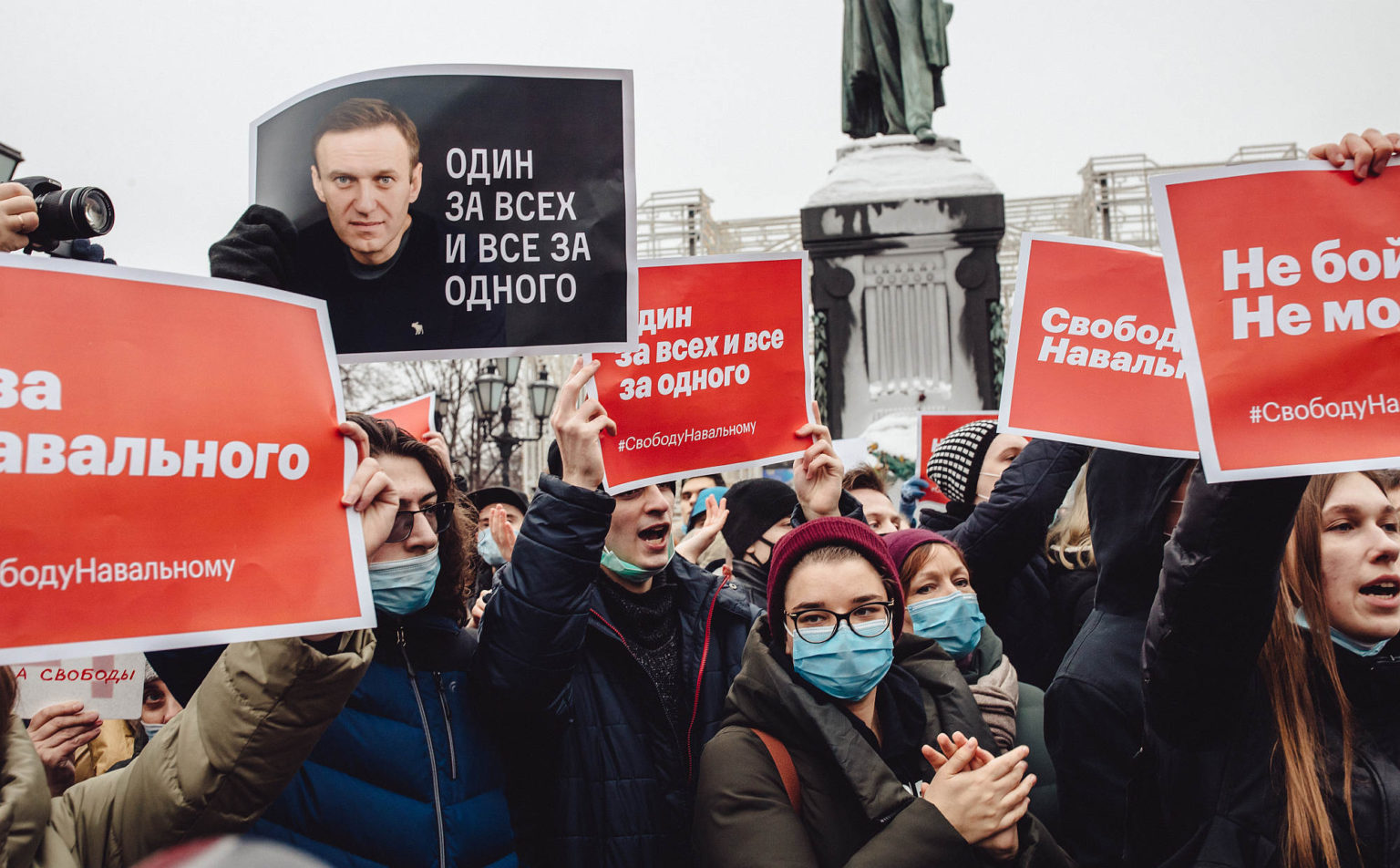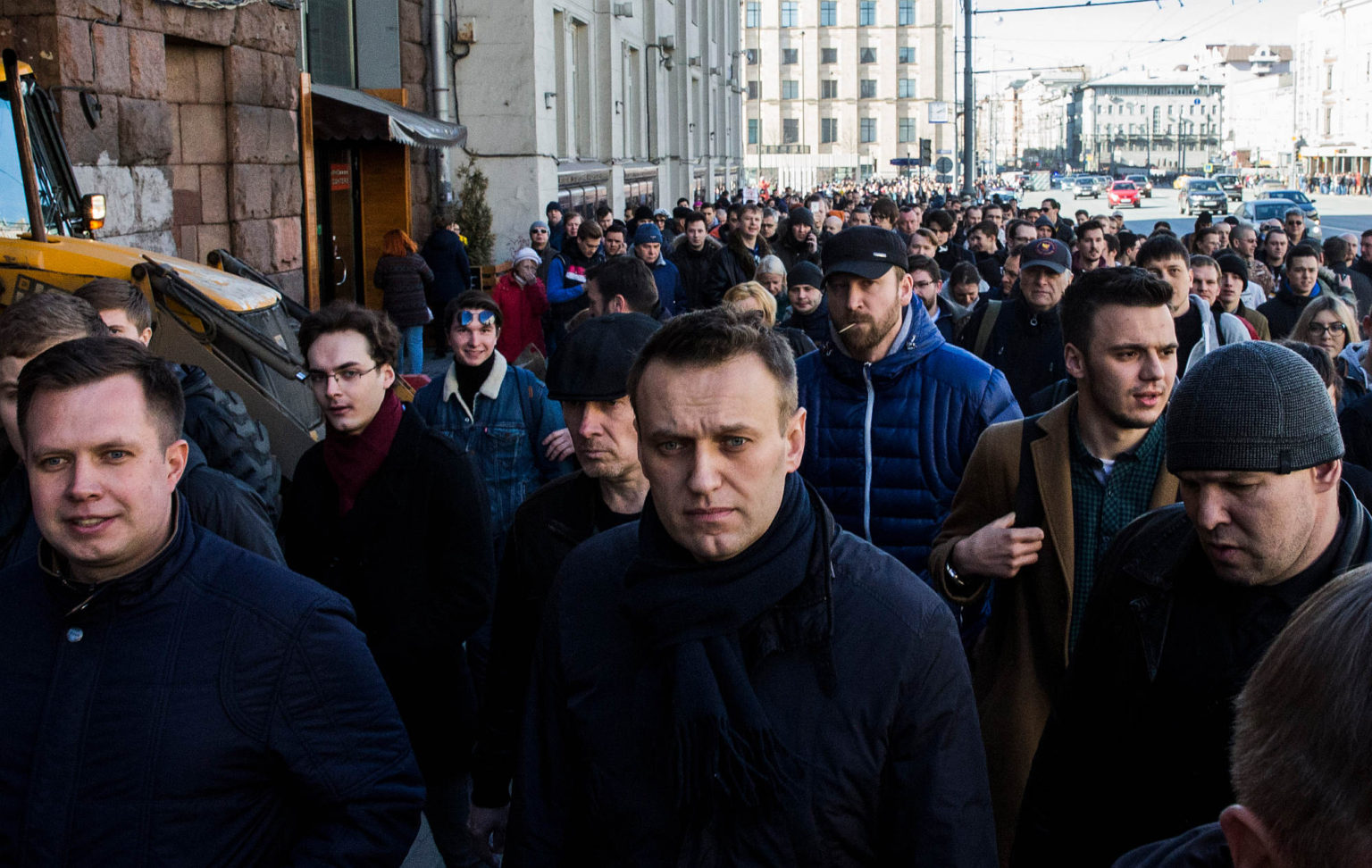
Long-read
Putin is not about to fall
Navalny’s appeal has been greatly exaggerated.
Want to read spiked ad-free? Become a spiked supporter.
In the last weeks of January it was – almost – possible to believe that Russia was on the brink of a revolution. Now, it is not. The difference, and the reasons for the change, say much – about Russia, about unrealistic perceptions of Russia abroad, and about what could make for political change in Russia in the future.
On 17 January Alexei Navalny – variously described as an anti-corruption campaigner, opposition blogger, or the next president of Russia – took the courageous decision to return to his homeland after spending four months in Germany recuperating from what the German Foreign Ministry said was an assassination attempt. Given the announcement of new criminal charges against him as he was deciding when or whether to return, it is probably fair to say that the Kremlin would have preferred him to remain abroad.
Navalny called on his supporters to meet him at the airport, which they did in such numbers that the authorities diverted his plane to an airport on the other side of Moscow. He was duly arrested. A week later, people turned out on the streets of major Russian cities, from Vladivostok in the east to Kaliningrad in the west, to demand his freedom. They turned out the next weekend, too, though generally in fewer numbers. There was much chatter on social media of Russia having finally awoken from its political slumber, even of the Putin era nearing its end.
On 2 February Navalny was sentenced to two years and eight months in a penal colony for breaking parole conditions set before his medical evacuation to Germany. After a scrappy protest outside the prison, further street protests have now been called off – probably, his team says, until the spring.
Around now, Navalny will be embarking on the long journey – the stuff of so many Russian memoirs and novels – to whichever remote prison camp he has been assigned. But it is not that a revolution is over, it is rather that there was never a revolution remotely on the cards. Russia remains in the embrace of winter, in every sense.
Which leaves – or should leave – an urgent question. How was it possible for so many, largely in the Western world, to be seduced into believing that Navalny’s return and the protests that followed could herald imminent change in Russia?
Part of the answer lies in the misreading of Russia’s reality and the outlook from the Kremlin today. Vladimir Putin and his ruling team are a lot stronger than they might appear from outside. Putin’s popularity ratings may have declined in the past year, but only a little. They are still over 60 per cent. Much has been made of the fact that Navalny is the only Russian politician whose ratings have risen since the start of the year – but only from three per cent to five per cent.
Yes, parts of the population are unhappy with what has been for them a decline in living standards, but compared with the huge improvement in the quality of life for most Russians over the past two decades, it will take more than this to trigger a revolution.
The pandemic has not – so far, at least – destabilised the government or the political system. Although Russia’s handling of coronavirus has been patchy, it has not been catastrophic at the national level. Russia comes somewhere in the middle in international league tables of deaths per capita, and, as in many countries, misfortune has encouraged people to look to the leader.

Any negative fallout is likely to come later, if there is a sharp economic downturn and a matching rise in unemployment. Then again, the economy, at least, seems to have been more resilient than in many other countries. Now, the increasing global acceptance of Russia’s Sputnik vaccine is likely to offset any criticism directed towards the Kremlin, while fuelling a resurgence of national pride.
At the same time, however, the return of an opposition figure who, before his dramatic departure for Germany, enjoyed name recognition in quite limited circles (and enthusiasm in fewer) was never likely to present the Kremlin with an insoluble problem. The Moscow authorities also appear to have invested in some seriously more sophisticated crowd-control techniques since the last big protests of 2011-2012 – to the point where they have been touting around footage of protest policing in other countries in an effort to fend off foreign criticism.
The authorities have also been helped by the season: a Russian winter is not the best time for mass demonstrations. Add to this the fact that opposition movements tend to be strongest in Moscow and St Petersburg, which is where most foreign journalists and diplomats are based, and the savvy PR that many opposition groups – and especially Navalny’s – deploy, and here is a recipe for unrealistic Western expectations.
Underestimating Russia’s current stability – and the Kremlin’s determination to protect that stability – however, is only part of the answer. Another part has to be the widespread demonisation of Putin by many in the English-speaking world, and the accompanying tendency to romanticise any half-presentable opposition, while also viewing it through the prism of street protests that have succeeded, however messily, elsewhere. Ukraine is the poster child here, with the Orange Revolution of 2004-5 (a winter revolution, by the way) and then the Euromaidan protests of 2013-14 that toppled Viktor Yanukovych – after he had rejected the association agreement with the European Union.
The protests in Belarus through the autumn and into winter seemed to offer another precedent. Protesters there showed dogged persistence, turning out weekend after weekend since August, in demonstrations laden with high-tech ingenuity and flair. What tends to be ignored here, however, is that President Alexander Lukashenka is still in power – and without any overt intervention from Moscow to save him. He has offered a few concessions and his days may be numbered, but he is still there. Opposition leaders, meanwhile, are in exile or prison. If this is a model for regime change in Russia, it has yet to prove its worth.

There is also a genuine divergence between Russia and abroad in how popular protest is viewed. What might be seen by opposition groups and their foreign supporters as heroic and just can be seen in Russia, as in China and elsewhere, as a threat. For many Russians, whose lives were blighted by insecurity, from the disintegration of the Soviet Union until well into Putin’s presidency, a homegrown Euromaidan, or Belarus, or ‘Arab Spring’ is something to be feared – and the Kremlin exploits that to the full.
Then there is Alexei Navalny himself. He fits the bill for a Western-style hero to perfection. He is handsome, charismatic and indisputably brave – not just in his decision to return to Russia, but when he began his anti-corruption blogging, as a lone voice, around 15 years ago. He has pioneered the use of the internet and social media to garner support among a post-Soviet generation of Russians who are among the most ‘connected’ in the world.
His appeal to the English-speaking world is obvious, and resulted in an invitation to spend four months in the United States in 2010 on a world leadership programme at Yale. He has the looks and the manner that could have made him an excellent living as a television presenter, had he not found a calling in political opposition. His latest videos – a two-hour expose of a vast seaside estate that he calls ‘Putin’s Palace’ or ‘the largest bribe in the world’, and a phone-call purported to be with an agent involved in the operation to poison him – show a knowing self-publicist with a sardonic wit at the very top of his game.
As such, it might be easy to dismiss Navalny as the West’s latest great white hope for Russia, someone who plays more strongly abroad than he does with his home constituency. Someone who is doomed in what should be his prime to a chequered procession from prison to courtroom to camp and back again, and whose influence, always limited to a small circle of well-connected aficionados, will fizzle out. Someone who, it is also worth noting, might quickly lose his appeal beyond Russia’s borders if he ever did touch real power, given the distinctly nationalist and populist tinge of his political views, insofar as they are known in any depth.
It should also be noted that the way Navalny has been lionised abroad, the statements of support from foreign governments, the Western diplomats who attended the protests, and the expressions of solidarity from Western darlings, such as ‘Pussy Riot’, are unlikely to further his cause in Russia.
And yet, and yet. While Navalny is unlikely to lead a new Russian revolution, while he is unlikely to be be Russia’s next president, or the one after that, or even an elected politician in his home country, his significance as a forerunner of change, as a pointer to some of the undercurrents in Russia today, is not to be ignored.

There are two big differences between the last big wave of protests in Russia in 2011-2012, around manipulated elections and Putin’s decision to seek re-election to the presidency. One is the geographical spread and the demographics. In January 2021, demonstrators turned out across the vast expanse of Russia. A decade before, the protests were mostly limited to the new middle class of Moscow and St Petersburg. The new protesters bring together this generation and the next – young Russians who have known nothing of the Soviet Union, beyond the post-imperial hangover and fragments passed down by grandparents.
The other is the digital revolution. It is often not appreciated that Russians adopted new mobile technology early – abandoning their backward landlines before they could be improved. Younger Russians are now adept and enthusiastic users of social media. This changes the media and communications landscape. It is no longer possible to talk of a state-media monopoly, even in the broadcast media. It now matters far less whether an opposition figure is locked up; he or she can sustain a virtual presence from behind bars.
And while social media do not of themselves a revolution make, they facilitate mobilisation; they help oppositions to organise and rally around a cause in a way that could not be done until recently. The downside, many would say, is the spread of ‘fake news’, but the upside is access to information that is genuine, but that the authorities would prefer you did not see. Navalny’s YouTube channel is only one of many alternative information sources.
Navalny has been a pioneer in his use of the internet and social media. But he has also been a pioneer in recent years as a campaigner from the regions upwards, rather than from the capital downwards. His central cause from the start has been corruption, and cities and regions provided ample material and readymade groups of campaigners who could be harnessed to his cause. The result is a network of local headquarters in more than two dozen Russian cities, such as no other Russian politician can command. It does not make Navalny electable at national level; it does show how other aspiring national politicians might try to build their support.
Navalny’s choice of corruption as his cause also strikes at once local and national chords. So far, one in four Russians is said to have viewed the video, ‘Putin’s Palace’, that was released after his return from Germany. Showing a lavish estate near Gelendzhik on the southern coast of Russia, the film is a masterly propaganda work. In reality, local reporters say, the ‘palace’ is nowhere near complete, interior pictures are all mock-ups. It is not at all clear that the project, such as it is, has anything to do with Putin personally. But it feeds into a view of all-pervasive state corruption that is prevalent not just in the West, but among Russians.
Navalny may not reap what he has sown with his anti-corruption campaign. He has, though, identified a source of regime vulnerability that another politician might capitalise on in the future. One striking feature of the protests last month was how far they were not just about Navalny – to the point where some participants said that they did not like or support him personally, but wanted to express their discontent. Somewhere, then, there is a cause that has graduated from being local to national and transcended Navalny himself.
This might not be welcome news for Navalny, or for his starstruck supporters abroad, but it could offer signs towards Russia’s future. It suggests that changes – of generation, of attitude and of possibilities – are well in train. As a forerunner, perhaps, Navalny has played his part.
Mary Dejevsky is a writer and broadcaster. She was Moscow correspondent for The Times between 1988 and 1992. She has also been a correspondent from Paris, Washington and China.
Images (unless stated otherwise): Getty.
Who funds spiked? You do
We are funded by you. And in this era of cancel culture and advertiser boycotts, we rely on your donations more than ever. Seventy per cent of our revenue comes from our readers’ donations – the vast majority giving just £5 per month. If you make a regular donation – of £5 a month or £50 a year – you can become a and enjoy:
–Ad-free reading
–Exclusive events
–Access to our comments section
It’s the best way to keep spiked going – and growing. Thank you!









Comments
Want to join the conversation?
Only spiked supporters and patrons, who donate regularly to us, can comment on our articles.